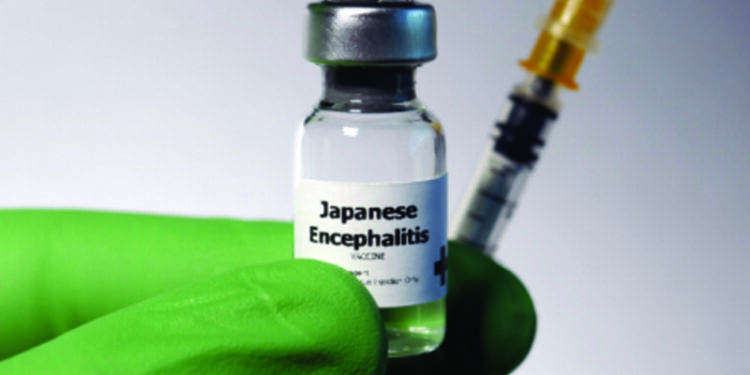NE NEWS SERVICE
GUWAHATI, OCT 3
When 12-year-old Bhanita Boro from Assam’s Udalguri district was diagnosed with the deadly Japanese Encephalitis in June, her poor parents had left the hope of getting their daughter back.
However, due to the coordinated efforts of doctors, officials and people empathetic to her situation, the class VII student from Simliguri village is standing on her feet again.
One of the three daughters of a poor farmer who mortgaged his tiny plot of land for Rs 70,000 to treat her, Boro is now looking forward to rejoining her school once the COVID-19 pandemic ends.
“For any JE patient, the real struggle starts after being diagnosed. If proper care is not taken during the treatment and after discharge, then the person might become paralysed for his/her entire life or even lose his/her life,” Health and Family Welfare (Commissioner and Secretary) Monalisa Goswami said.
After her release in July, a team of doctors and officials from the state headquarters met Boro and her parents to check her condition and tried to communicate with the patient to analyse whether she is able to respond to commands, Goswami added.
Health Services (Malaria) Joint Director Harpal Singh Suri said, “The girl was earlier physically disabled and unable to move her limbs or body parts. She had tried to move her hands and tongue when asked to but was unable to do it. Then, we provided her with a wheel-chair and her physiotherapy began.”
Senior Medical and Health Officer Parashee Choudhury expressed happiness that Boro was now not only able to understand and react to the commands given to her, but also stand, walk and speak.
“Though she has not been completely cured of the disease, her rate of recovery is satisfactory and commendable,” Choudhury said, sharing some photographs of Boro in the post-JE stage and her gradual betterment.
Experts are of the view that the recovery of a patient depends on the amount of inflammation in his/her brain and how early the disease is detected.
“Recovery of a patient depends on how much the brain has been affected by JE as it causes inflammation of the brain and its surrounding areas.
“If the disease is detected early, recovery will be faster. With proper physiotherapy, usually it takes 1-2 years for a patient to be normal again,” Santanu Kumar Sarma, a doctor at Tezpur Medical College and Hospital, said.
Considering the financial condition of Boro’s parents, the Health Department is working to offer a monthly grant for her treatment through the Social Welfare Department, Goswami said.
An employee of the National Health Mission, on condition of anonymity, said she and a few of her colleagues have helped Boro”s family financially in a personal initiative and are giving them food grains, fruits and other essential items.
After being diagnosed with Japanese Encephalitis, Boro was first taken to the nearest health facility in Dimakuchi, from where she was taken to Naokata in Baksa district as her condition did not improve.
Later, she was admitted to Gauhati Medical College and Hospital (GMCH).
After the discharge of Boro, health officials arranged the continuation of the girl”s post-JE support by admitting her to Bhergaon Model Hospital instead of keeping her at home because of the extreme poverty of her family, Suri said.
“We have mortgaged our land for Rs 70,000. Her father is away from home to earn a livelihood. Still, we have not given up on Bhanita. She is our daughter and we will do everything to get her back on her feet,” Dipali Boro, the girl’s mother said.
Assam has reported 51 deaths out of 319 Japanese Encephalitis cases this year, translating it into 16 per cent mortality rate as against 0.39 per cent fatality rate in COVID-19, as per a health bulletin issued on Friday.
Last year, 154 people had lost their lives to Japanese Encephalitis out of 631 detected cases in Assam, a death rate of over 24 per cent.










